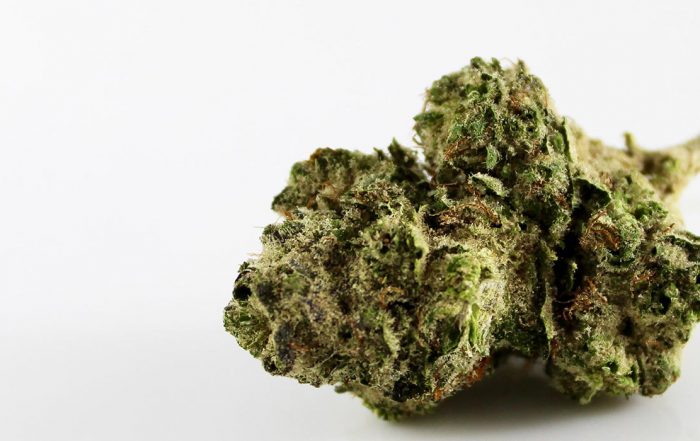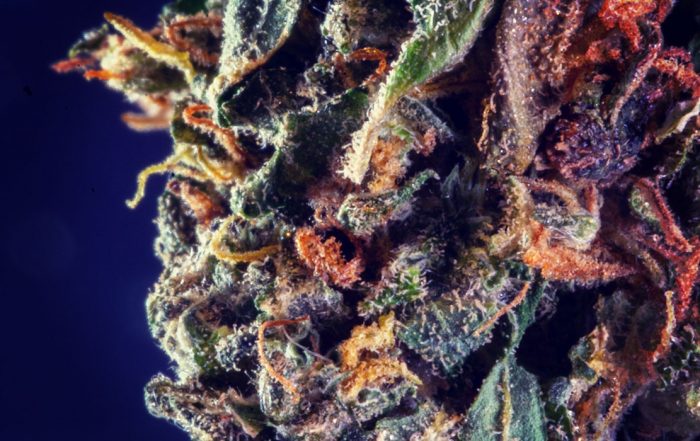North Carolina Marijuana Laws
Medical and recreational marijuana use is illegal in North Carolina. The state allows patients with intractable epilepsy to possess and consume CBD oil that contains less than 0.9% THC, though no regulated retail locations are operational.

LAW BREAKDOWN
LAW BREAKDOWNS
North Carolina has partially decriminalized simple marijuana possession, and the drug is legal for limited, non-intoxicating medical uses. But any other possession, sale, delivery, or cultivation of the drug is a crime.
Possession
Possession of half an ounce of marijuana or less is a misdemeanor in North Carolina but does not carry potential jail time. At most a $200 fine may be imposed.
Possession of between half an ounce and 1.5 ounces is likewise a misdemeanor and is punishable by a minimum sentence of 1 day in jail and a maximum of 45 days, plus up to $1,000 in fines. Possession of between 1.5 ounces and 10 pounds is a felony punishable by at least 3 months in jail, as many as 8, and a fine of up to $1,000.
Possession of any amount greater than 10 pounds is automatically treated as possession with intent to distribute, a felony. But possession with intent can be charged for smaller amounts: The minimum penalty for possession of less than 10 pounds with intent is 3 months in jail, while the maximum is 8 months and $1,000.
A penalty of between 25 and 39 months imprisonment, plus a fine of at least $5,000, applies to possession of between 10 and 50 pounds with intent. If the amount is between 50 and 2,000 pounds, a prison term of between 35 and 51 months applies, along with up to $25,000 in fines.
Possession of between 2,000 and 10,000 pounds with intent is punishable by at least 70 months in prison, as many as 93 months, and up to $50,000 in fines. For weights of 10,000 pounds or more, the minimum penalty is 175 months in prison, the maximum is 222 months, and there is a potential fine of $200,000.
| Offense | Penalty | Incarceration | Max. Fine |
|---|---|---|---|
| 0.5 oz or less | Misdemeanor | N/A | $ 200 |
| 0.5 – 1.5 oz | Misdemeanor | 1 – 45 days | $ 1,000 |
| More than 1.5 oz – 10 lbs | Felony | 3 – 8 months | $ 1,000 |
Scroll to see the rest of the table.
With Intent to Distribute
| Offense | Penalty | Incarceration | Max. Fine |
|---|---|---|---|
| More than 10 – less than 50 lbs | Felony | 25* – 39 months | $ 5,000 |
| 50 – less than 2000 lbs | Felony | 35* – 51 months | $ 25,000 |
| 2000 – less than 10,000 lbs | Felony | 70* – 93 months | $ 50,000 |
| 10,000 lbs or more | Felony | 175* – 222 months | $ 200,000 |
| * Mandatory minimum sentence | |||
Sale or Delivery
Any sale or delivery of cannabis is a felony in North Carolina. For amounts less than 10 pounds, the punishment is at least 4 months in jail and as many as 8, plus $1,000 in fines.
Sale or delivery of 10 to 50 pounds is punishable by at least 25 months in prison, as many as 39 months, and up to $5,000 in fines. For weights of between 50 and 2,000 pounds, the minimum penalty is 35 months in prison, the maximum is 51 months, and fines can total $25,000.
In cases involving between 2,000 and 10,000 pounds, a mandatory minimum sentence of 70 months in prison applies, along with a maximum of 93 months and a fine of up to $50,000. For weight above 10,000 pounds, the sentence includes at least 175 months in prison, as many as 222 months, and a top fine of $200,000.
Selling or delivering marijuana to a minor or a pregnant woman is punishable by between 3 and 8 years in prison. Sale or delivery within 1,000 feet of a school, child care center, or public park carries a minimum penalty of 1 year in jail and a maximum of 3 years in prison.
Scroll to see the rest of the table.
| Offense | Penalty | Incarceration | Max. Fine |
|---|---|---|---|
| 10 lbs or less | Felony | 4 – 8 months | $ 1,000 |
| More than 10 – less than 50 lbs | Felony | 25* – 39 months | $ 5,000 |
| 50 – less than 2000 lbs | Felony | 35* – 51 months | $ 25,000 |
| 2000 – less than 10,000 lbs | Felony | 70* – 93 months | $ 50,000 |
| 10,000 lbs or more | Felony | 175* – 222 months | $ 200,000 |
| To a minor or pregnant women | Felony | 3 – 8 years | N/A |
| Within 1000 feet of school, child care center, or park grounds | Felony | 1 – 3 years | N/A |
| * Mandatory minimum sentence | |||
Cultivation
It is a felony to grow any amount of cannabis in North Carolina for any reason. Penalties for growing less than 10 pounds range between 3 and 8 months in jail, along with up to $1,000 in fines.
If the amount is between 10 and 50 pounds, the minimum penalty increases to 2 years in prison, the maximum to 2.5 years, and the potential fine to $5,000. Cultivation of between 50 and 2,000 pounds is punishable by between three and 3.5 years in prison and up to $25,000.
Growing between 2,000 and 10,000 pounds carries a mandatory minimum penalty of 6 years in prison, a maximum of 7 years, and a top fine of $50,000. For weights of 10,000 pounds or more, the minimum is 14.5 years in prison, the maximum is 18 years, and the fine can reach $200,000.
Scroll to see the rest of the table.
| Offense | Penalty | Incarceration | Max. Fine |
|---|---|---|---|
| Less than 10 lbs | Felony | 3 – 8 months | $ 1,000 |
| 10 – 50 lbs | Felony | 2* – 2.5 years | $ 5,000 |
| 50 – 2000 lbs | Felony | 3* – 3.5 years | $ 25,000 |
| 2000 – 10,000 lbs | Felony | 6* – 7 years | $ 50,000 |
| 10,000 lbs or more | Felony | 14.5* – 18 years | $ 200,000 |
| *Mandatory minimum sentence | |||
Concentrates
Special rules apply to offenses involving hashish or other marijuana concentrates. Possession of less than 0.05 ounces is a misdemeanor and comes with a punishment of at least 1 day in jail and as many as 10 days, plus a $200 fine.
Possession of between 0.05 and 0.15 ounces of concentrate is also a misdemeanor and is punishable by at least one day in jail, as many as 45 days, and $200. Possession of more than 0.15 ounces is a felony with a minimum term of 4 months in jail, a maximum of 6 months, and a potential fine of $200.
| Offense | Penalty | Incarceration | Max. Fine |
|---|---|---|---|
| Possession of less than 0.05 oz | Misdemeanor | 1 – 10 days | $ 200 |
| Possession of 0.05 – 0.15 oz | Misdemeanor | 1 – 45 days | $ 200 |
| Possession of more than 0.15 oz | Felony | 4 – 6 months | $ 200 |
Scroll to see the rest of the table.
Paraphernalia
Marijuana paraphernalia is illegal in North Carolina unless intended, marketed, and used solely for legal purposes. Paraphernalia includes any items used, or intended for use, in the manufacture, cultivation, harvesting, processing, testing, analysis or consumption of marijuana.
Possession, sale, delivery or manufacture of marijuana paraphernalia are misdemeanors punishable by between 1 and 45 days in jail and up to $1,000 in fines. If the paraphernalia is sold to a minor who is at least 3 years younger than the seller, the jail term is between 3 and 8 months.
| Offense | Penalty | Incarceration | Max. Fine |
|---|---|---|---|
| Use, possession, sale, delivery, or manufacture of paraphernalia | Misdemeanor | 1 – 45 days | $ 1,000 |
| To a minor who is at least 3 years younger | Felony | 3 – 8 months | N/A |
Miscellaneous
Any marijuana crime involving a minor is a felony and is punishable by at least 8 months in jail and as many as 7 years in prison. Possession of cannabis in a penal institution is a felony with a penalty of between 4 and 8 months additional imprisonment.
Civil Asset Forfeiture
| Offense |
|---|
| Vehicles and other property may be seized. |
Miscellaneous
| Offense | Penalty | Incarceration | Max. Fine |
|---|---|---|---|
| Involving a minor | Felony | 8 months – 7 years | N/A |
| Possession in a penal institution | Felony | 4 – 8 months | N/A |
| A fine of $0 is discretionary and is decided on a case-by-case basis by the sitting judge. See below for more details. | |||
| If convicted of a felony offense and given probation results in driver’s license forfeiture. | |||
Scroll to see the rest of the table.
Medical Marijuana
MEDICAL MARIJUANA
North Carolina’s CBD-only legislation calls for a trial study to be conducted by four universities in the state: UNC, Duke, Wake Forest and East Carolina.
The primary focus is to make CBD oil available to minors that suffer from seizures.
QUALIFYING CONDITIONS:
Intractable epilepsy
PATIENT POSSESSION LIMITS:
Cannabis extract containing less than nine-tenths of a percent THC and at least five percent CBD
HOME CULTIVATION:
No
STATE-LICENSED DISPENSARIES:
No
CAREGIVERS:
No
RECIPROCITY:
NO
North Carolina Marijuana Attorneys
The following North Carolina lawyers are actively involved in the practice of cannabis law:








